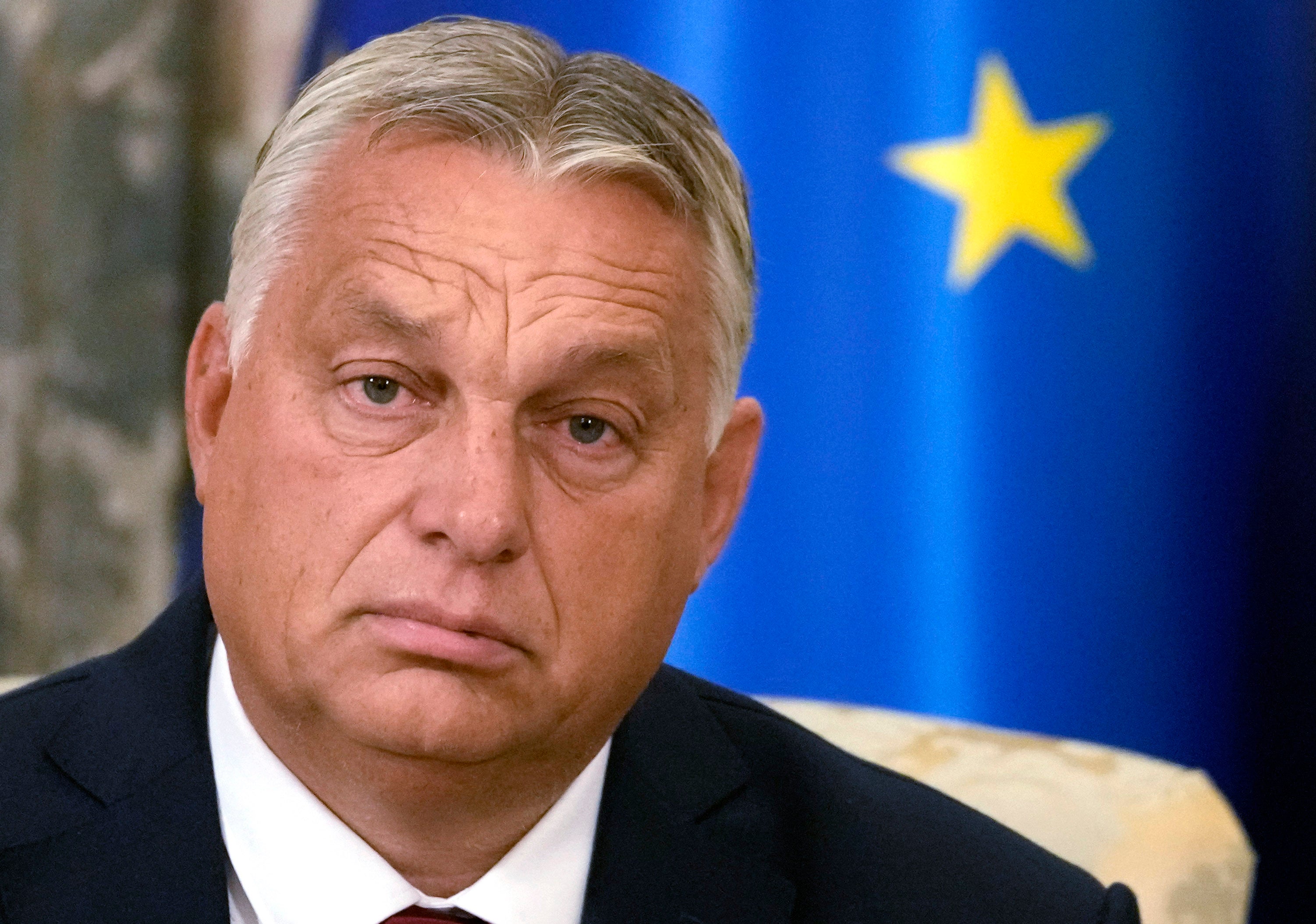Hungary appeals for time, as EU weighs hefty fund freeze
Hungary's justice minister is urging her European Union partners to be “tolerant” after the EU’s executive branch recommended suspending billions of euros in funding to the country

Your support helps us to tell the story
From reproductive rights to climate change to Big Tech, The Independent is on the ground when the story is developing. Whether it's investigating the financials of Elon Musk's pro-Trump PAC or producing our latest documentary, 'The A Word', which shines a light on the American women fighting for reproductive rights, we know how important it is to parse out the facts from the messaging.
At such a critical moment in US history, we need reporters on the ground. Your donation allows us to keep sending journalists to speak to both sides of the story.
The Independent is trusted by Americans across the entire political spectrum. And unlike many other quality news outlets, we choose not to lock Americans out of our reporting and analysis with paywalls. We believe quality journalism should be available to everyone, paid for by those who can afford it.
Your support makes all the difference.Hungary needs time and is urging its European Union partners to be “tolerant,” the country's justice minister said Tuesday, after the bloc's executive branch recommended suspending billions of euros in funding over concerns about democratic backsliding and the possible mismanagement of EU money.
Justice Minister Judit Varga said that Hungary has proposed 17 measures which are “capable of remedying all the concerns” expressed by European Commission. EU Budget Commissioner Johannes Hahn recommended over the weekend that 7.5 billion euros (dollars) from Hungary’s EU funds be frozen.
“Time is needed, because even if there are accelerated procedures to adopt laws and amend legislation, you need to set up new institutions. For that, you have to hire new personnel,” Varga told reporters in Brussels. She said she expects Hungary to have until mid-November to show it’s on the right track.
The commission on Sunday took the unprecedented action of recommending that Hungary’s 26 EU partners vote to suspend the payments “to ensure the protection of the EU budget and the financial interests of the EU against breaches of the principles of the rule of law in Hungary.”
The commission’s fears focus on public procurement — purchases by the state of goods and services or for the execution of projects using EU funds — in particular that around half of the tender procedures have only involved one bidder.
Critics say the awarding of such contracts have allowed Prime Minister Viktor Orban’s nationalist government to channel large sums of EU money into the businesses of politically connected insiders.
The commission also has “serious concerns regarding the detection, prevention and correction of conflicts of interest,” and is reluctant to see EU money put into some public interest trusts which manage significant funds, notably in the area of education.
Despite the concerns, Hahn welcomed Hungary’s offer to fix the problem, saying that its proposed remedial action goes “in the right direction.” EU member countries have one month to decide whether to freeze the funds, but can in exceptional circumstances extend that period to two months.
Varga called on Hungary’s EU partners “to be tolerant, to be positive, to be constructive and forward-looking” because ultimately the main aim of the commission’s so-called rule of law action “is prevention not sanctioning.”
“There is no danger,” she said.
EU lawmakers see it differently.
“It is fatal that Viktor Orban can still avert these sanctions before the end of the year with a few pseudo-reforms,” said German Green Daniel Freund, a lead lawmaker on the rule of law. “A decisive stance is needed, not just a few improvements in Hungarian public procurement law.”
In contrast, officials in Orban’s government have depicted the commission’s decision as a victory, and emphasized their commitment to carrying out reforms they believe will unlock the funds.
In a tweet Sunday, the premier’s political director, Balazs Orban, called the decision “good news.” He wrote that Budapest “will fulfill 100% of its commitments & submit the necessary bills to Parliament, so there will be no obstacles to close the discussions in 3 months and to receive EU funds.”
___
Justin Spike contributed to this report from Budapest, Hungary.